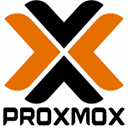Unleash Your Virtualization Power: Top XCP-ng Alternatives
XCP-ng has emerged as a powerful, open-source hypervisor, built upon the XenServer (now Citrix Hypervisor) foundation. It’s lauded for offering all the advanced features typically restricted by commercial licenses, including Storage Motion and vGPU support, with the added benefit of community-driven enhancements like zstd compression for faster backups. Paired with Xen Orchestra, it creates a robust, fully open-source virtualization environment. However, even the most capable solutions might not be the perfect fit for every scenario. Whether you're seeking different feature sets, specific platform compatibility, or a varying support model, exploring XCP-ng alternatives is a smart move for any IT professional or enthusiast.
Top XCP-ng Alternatives
Looking for a different approach to your virtualization needs? These top alternatives to XCP-ng offer diverse capabilities, from enterprise-grade solutions to user-friendly options, ensuring you find the perfect match for your infrastructure.

VirtualBox
VirtualBox is a versatile and widely used x86 and AMD64/Intel64 virtualization product, suitable for both enterprise and home use. As a Free and Open Source solution available on Mac, Windows, Linux, BSD, and Solaris, it's an excellent XCP-ng alternative for desktop virtualization, allowing you to run multiple guest operating systems side-by-side. Its features include support for various disk formats (like Open VMDK files) and multiple languages, making it a flexible choice for individual users or development environments.

Proxmox Virtual Environment
Proxmox Virtual Environment is an enterprise-class, open-source virtualization platform that offers both container-based (LXC) and full virtualization (KVM). This Freemium solution, primarily for Linux environments, is a strong XCP-ng alternative for those needing a comprehensive, integrated management platform. Its key features include live migration, high availability clustering, and an intuitive WebUI for centralized management, making it ideal for robust server virtualization.

OpenStack
OpenStack is a massive, Free and Open Source cloud computing platform, collaboratively developed by a global community. While XCP-ng focuses on a single hypervisor, OpenStack provides an entire suite of services for building public and private clouds, making it a powerful XCP-ng alternative for large-scale, dynamic environments. Its Web-based interface and focus on cloud development set it apart for those requiring a full cloud infrastructure solution rather than just a hypervisor.

Xen
Xen.org hosts the Xen hypervisor, the underlying technology that powers XCP-ng itself. As a Free and Open Source bare-metal hypervisor primarily for Linux, Xen provides the core virtualization services. For users who prefer to build their virtualization stack from the ground up, or for highly specialized use cases, using the native Xen hypervisor directly offers maximum control and customization, serving as a fundamental XCP-ng alternative for expert users.

VMware vSphere Hypervisor
VMware vSphere Hypervisor (based on ESXi) is a free bare-metal hypervisor provided by VMware, a leader in virtualization. While XCP-ng is open source, VMware vSphere Hypervisor is a Commercial offering primarily for Windows and Linux, supporting advanced features like NVIDIA vGPU and AMD MxGPU. It's a robust XCP-ng alternative for organizations deeply invested in the VMware ecosystem or those seeking a highly stable, widely adopted commercial solution for server consolidation.

Microsoft Hyper-V Server
Microsoft Hyper-V Server is a stand-alone, Commercial product from Microsoft that provides a reliable and optimized virtualization solution. Primarily for Windows and Linux guests, it focuses on hypervisor capabilities for server virtualization. For environments heavily reliant on Microsoft technologies, Hyper-V Server serves as a direct and often seamless XCP-ng alternative, leveraging existing Windows administration skills and infrastructure.

Citrix Hypervisor
Citrix Hypervisor (formerly XenServer) is the commercial counterpart and original base for XCP-ng. As a Freemium and partially Open Source platform for Windows and Linux, it's optimized for application, desktop, and server virtualization infrastructures, supporting advanced GPU virtualization with RadeonPro, NVIDIA vGPU, and AMD MxGPU. For organizations seeking the stability and official support of the original developer, Citrix Hypervisor is a direct XCP-ng alternative, albeit with different licensing models.

oVirt
oVirt is a Free and Open Source virtualization management application for Linux, designed to manage hardware nodes, storage, and network resources within a virtualization environment. It focuses on providing a robust management interface for KVM-based virtualization, making it a compelling XCP-ng alternative for those who prefer KVM and require advanced features like cluster management and high availability for their virtualized infrastructure.

Virtualizor
Virtualizor is a powerful Commercial web-based VPS Control Panel for Linux, supporting multiple virtualization technologies including OpenVZ, Xen PV, Xen HVM, XenServer, and Linux KVM. While XCP-ng provides the hypervisor, Virtualizor offers a complete solution for managing virtual private servers, including features like live migration and domain forwarding. It's an excellent XCP-ng alternative for service providers or individuals looking to manage multiple VPS instances across different hypervisors.

Citrix XenCenter
Citrix XenCenter is the Free and Open Source Windows-native graphical user interface specifically designed for managing Citrix XenServer. While not a hypervisor itself, for users who prefer a dedicated Windows client for managing their Xen-based environments, XenCenter provides a familiar and robust management layer. As XCP-ng is based on XenServer, XenCenter can be considered a complementary or alternative management tool for similar hypervisor deployments, though XCP-ng users typically leverage Xen Orchestra for management.
Choosing the right virtualization solution is crucial for optimizing your infrastructure. While XCP-ng offers an incredible open-source package, these alternatives demonstrate the diverse landscape of hypervisors and virtualization platforms available. Consider your specific needs regarding features, budget, platform compatibility, and support requirements to select the best fit for your projects and empower your virtualization strategy.